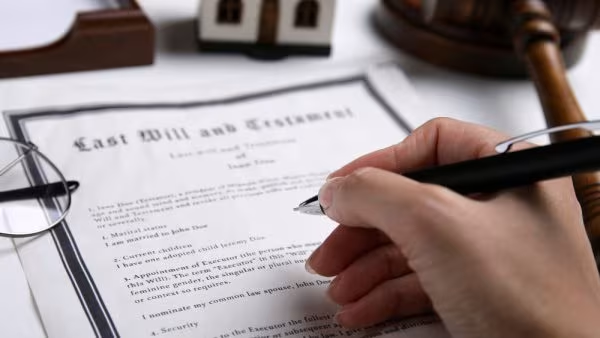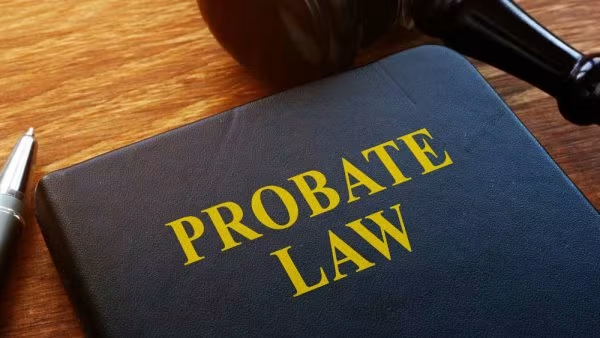Wills & Estates
Ensure your assets are protected and your wishes are carried out with a legally sound will and estate plan. At Wright Street Lawyers, we provide client-focused guidance and support in Adelaide for all matters related to wills and estates.
What is Wills & Estates?
Wills and estates refer to legal matters surrounding the distribution of assets and the administration of an individual’s affairs after their death. It involves creating a legally binding document, known as a will, which outlines the deceased person’s wishes regarding the distribution of their property and the care of any dependents.
Additionally, the field of estates encompasses the legal processes and procedures involved in managing the deceased person’s assets, paying off any debts, and distributing the remaining estate to the beneficiaries.
In South Australia, wills and estates are governed by the Wills Act 1936 and the Administration and Probate Act 1919, along with other relevant legislation.
Key Elements/Types of Wills & Estates
There are several key elements and types of wills and estates that individuals should be aware of:
- Testamentary Will: This is the most common type of will, which is made by an individual during their lifetime and comes into effect upon their death.
- Joint Will: A joint will is created by two individuals, usually spouses or partners, and is meant to distribute their assets in a coordinated manner.
- Living Will: A living will, also known as an advance care directive, is a document that outlines an individual’s medical treatment preferences and decisions in the event they are unable to communicate or make decisions themselves.
- Intestacy: When a person dies without a valid will, their estate is distributed according to the laws of intestacy. In South Australia, the intestacy rules are defined in the Administration and Probate Act 1919.
- Testamentary Trust: A testamentary trust is a trust that is created through a will and comes into effect upon the death of the testator. It allows for the management and distribution of assets in a controlled manner, often for the benefit of minor children or individuals with special needs.
The Legal Process in South Australia
The legal process related to wills and estates in South Australia generally involves the following steps:
- Will Creation: The first step is to create a valid will that reflects your wishes. This involves consulting with an experienced wills and estates lawyer who can provide guidance on legal requirements and help ensure the document accurately represents your intentions.
- Executor Appointment: When creating a will, you will need to appoint an executor who will be responsible for administering your estate after your death. The executor’s role includes gathering assets, paying debts and taxes, and distributing the estate according to your wishes.
- Probate: Probate is the legal process that validates a will and confirms the executor’s authority to administer the estate. In South Australia, the Supreme Court oversees the probate process and grants probate when satisfied with the validity of the will.
- Estate Administration: Once probate is granted, the executor will begin the process of administering the estate. This involves inventorying assets, paying any outstanding debts or taxes, and distributing the remaining estate to the beneficiaries according to the terms of the will.
- Challenges and Disputes: In some cases, disputes or challenges to the validity of the will may arise. This can include claims of undue influence, lack of testamentary capacity, or improper execution. Resolving these disputes may require court intervention.
It is crucial to seek legal advice from a qualified wills and estates lawyer to ensure a smooth and legally compliant process.
Your Rights and Obligations
As an individual involved in wills and estates matters in South Australia, you have certain rights and obligations:
- Right to Make a Will: Every adult has the right to make a will that reflects their wishes regarding the distribution of their assets.
- Right to Choose an Executor: You have the right to appoint an executor who will be responsible for administering your estate after your death.
- Obligation to Provide for Dependents: If you have dependents, such as minor children or individuals with special needs, you have an obligation to make adequate provision for their care and support in your will.
- Obligation to Act Prudently as an Executor: If you are appointed as an executor, you have an obligation to act in the best interests of the estate and its beneficiaries. This includes managing assets responsibly, paying debts and taxes, and distributing the estate in accordance with the will.
- Right to Challenge a Will: If you believe a will is invalid or does not adequately provide for you as a beneficiary, you have the right to challenge the will in court.
Understanding your rights and obligations is essential for ensuring your wishes are carried out and for protecting your interests in the wills and estates process.
Common Issues and Solutions
While each wills and estates case is unique, there are common issues that individuals may encounter:
- Disputes Among Beneficiaries: Beneficiaries may disagree on the interpretation of the will or the distribution of assets, leading to disputes that can strain relationships. Mediation or court intervention may be necessary to resolve these conflicts.
- Challenges to the Validity of a Will: If there are concerns about the validity of a will, such as allegations of undue influence or lack of testamentary capacity, interested parties may challenge the will’s validity in court. Proper legal representation is vital in such cases.
- Failure to Update a Will: Life circumstances change, and it’s essential to update your will accordingly. Failure to do so can result in unintended consequences and potential disputes among family members. Regular review of your will is recommended.
- Complex Asset Distribution: Some individuals may have complex asset portfolios, such as businesses, trusts, or international assets. Proper estate planning is crucial in these cases to ensure a smooth distribution and minimise tax implications.
- Disputes Involving Executors: Executors may face challenges or disputes from beneficiaries or other interested parties. Seeking legal advice can help resolve these issues and ensure the executor fulfills their duties appropriately.
At Wright Street Lawyers, we have extensive experience in handling a wide range of wills and estates matters in Adelaide. Our team of skilled lawyers can provide practical solutions tailored to your specific circumstances.
Why Choose Wright Street Lawyers
When it comes to wills and estates, choosing the right legal representation is crucial. At Wright Street Lawyers, we offer several key advantages:
- Experience and client-focusedise: Our team of lawyers specialises in wills and estates law and has extensive experience in handling complex matters.
- Local Adelaide Knowledge: We have a deep understanding of South Australian law and the local context, enabling us to provide tailored advice and solutions.
- Personalised Service: We take the time to understand your unique circumstances and goals, ensuring we provide personalised guidance and support throughout the process.
- Compassionate Approach: Dealing with wills and estates matters can be emotionally challenging. We approach each case with empathy and sensitivity, supporting you during difficult times.
- Proven Track Record: We have a track record of delivering successful outcomes for our clients and have earned a reputation for excellence in Adelaide’s legal community.
When you choose Wright Street Lawyers, you can trust that your wills and estates matter will be handled with the utmost professionalism and dedication.
FAQs
1. Do I need a lawyer to create a will?
While it is not a legal requirement to have a lawyer create your will, consulting with an experienced wills and estates lawyer can ensure that your will is legally valid and accurately represents your wishes. They can also provide guidance on complex matters and help minimise the risk of disputes.
2. Can I change my will after it is created?
Yes, you can update your will at any time as long as you have the mental capacity to do so. It is recommended to review your will regularly and make updates to reflect any significant life changes, such as marriage, divorce, birth of children, or acquisition of new assets.
3. What happens if I die without a will?
If you die without a valid will, your estate will be distributed according to the laws of intestacy. In South Australia, the intestacy rules determine how your assets will be divided among your surviving relatives. It is advisable to create a will to ensure your assets are distributed according to your wishes.
4. How long does the probate process take in South Australia?
The duration of the probate process can vary depending on the complexity of the estate and any potential disputes or issues that arise. In South Australia, it typically takes around 3 to 6 months to obtain a grant of probate. However, more complex estates or contested matters may take longer.
5. Can I challenge a will?
If you have a legitimate reason to believe that a will is invalid or does not adequately provide for you as a beneficiary, you can challenge the will in court. Valid reasons for challenging a will include undue influence, lack of testamentary capacity, or improper execution.
Get client-focused Legal Help Today
Contact Wright Street Lawyers for a confidential consultation












